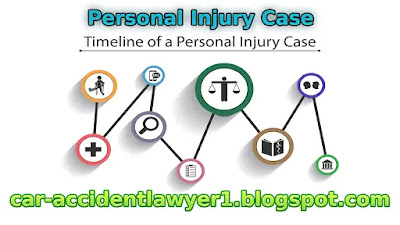How a Personal Injury Case is Settled
Steps in a Personal Injury Lawsuit
 |
| personal injury case |
How a Personal Injury Case is Settled
People are often anxious about pursuing claims for compensation following an injury because they are fearful of court. Most personal injury cases however resolve without a trial!
Following an injury, it is essential you seek medical care and provide your doctors with details regarding your injuries and how they are affecting you. Our lawyers will obtain medical reports, provide them to the insurer and attempt resolution. In the event we cannot agree to a fair resolution, a claim will be instituted through the judicial system.
The claim will generally then proceed through a “discovery,” where the insurance lawyer asks questions regarding your injuries. Following discoveries we will again attempt resolution informally. If the informal process is unsuccessful, a “mediation” often follows. Parties meet formally and enlist the services of a mediator, an independent party to assist in the resolution process.
What constitutes Medical malpractice?
Any person may be held responsible in law for damages caused by their negligent conduct if a duty of care is owed. Doctors are not exempt from this principle. Medical malpractice is an act or omission by a physician that falls below the standard of care required in the circumstances and results in injury or death to the patient.
Doctors are held to a higher standard of care than someone who is not a doctor. The standard of care for a doctor is that of a reasonably prudent doctor in their area of practice. Medical malpractice claims could come in the form of failing to perform treatment in accordance with accepted practices in similar circumstances, failing to diagnose disease or failing to consult with a specialist when the patient is not responding to treatment. Responsibility is fact driven and dependent on the circumstances of each particular case.
Medical malpractice cases are extremely complicated and in order to be successful in proceeding with such a case it is often necessary to retain doctors to comment on the actions of the responsible physician. Time is of the essence and it is key these doctors be retained early on to ensure all necessary evidence is available for them to provide a reasoned opinion.


